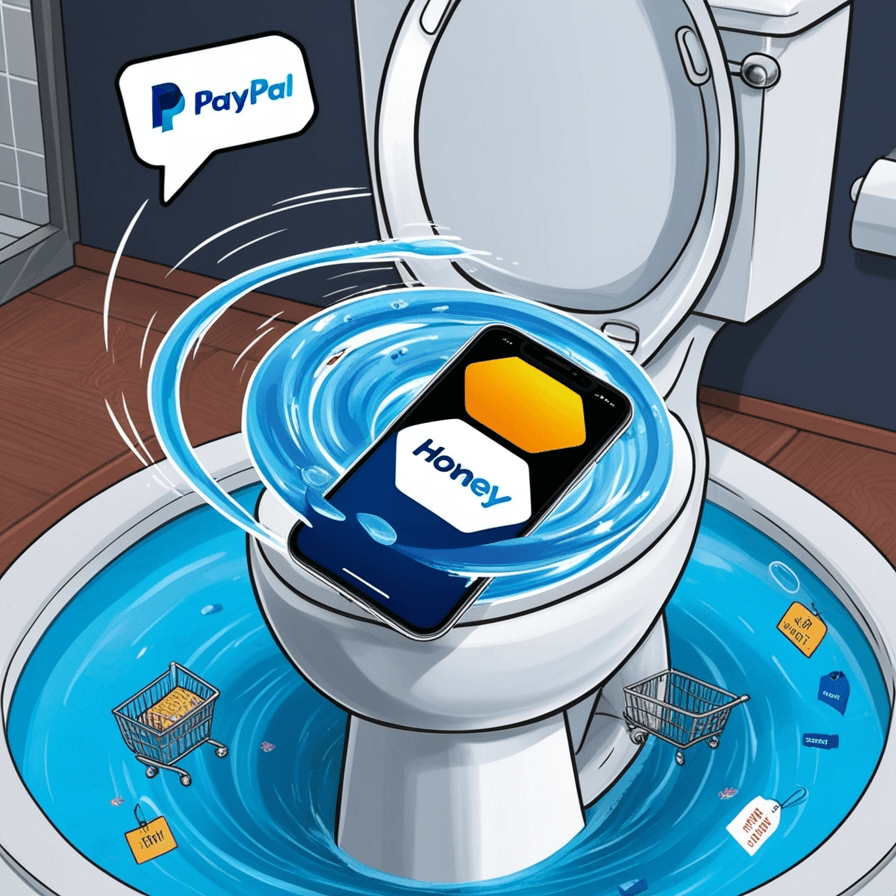Dec 26, 2024
PayPal's popular browser extension Honey, once hailed as a consumer's best friend for finding online discounts, is now facing serious allegations of deceptive practices that harm both consumers and content creators.
The Sticky Situation
Honey, acquired by PayPal in 2019 for $4 billion, has been accused of manipulating affiliate marketing systems and withholding discount information from users
These allegations, brought to light by YouTube channel MegaLag, paint a picture of a company that prioritizes its own profits over the interests of consumers and content creators.
Hijacking Affiliate Commissions
One of the most troubling accusations against Honey is its alleged practice of intercepting and redirecting affiliate commissions
Here's how it reportedly works:
When a user clicks on an influencer's affiliate link, a tracking cookie is created.
At checkout, Honey activates and replaces the original cookie with its own.
This ensures Honey gets credit for the sale, even if it didn't provide any discount
This practice effectively diverts commission payments from content creators who promoted the products to PayPal, depriving them of their rightful earnings
The "Last Click" Deception
Honey exploits the "last-click wins" model of affiliate marketing
Even when it can't find any valid coupon codes, the extension prompts users to click an "OK" button or check for discounts. This subtle action activates a hidden affiliate link, ensuring Honey gets the "last click" attribution and secures the commission for itself
Not-So-Sweet Deals for Consumers
Contrary to its promise of finding the best deals, Honey has been accused of selectively displaying coupon codes that benefit its bottom line rather than consumers
The platform allegedly allows merchants in its cashback program to control which coupons appear to users, potentially hiding better publicly available discounts
The Implications
These practices, if true, have far-reaching consequences:
Content creators lose income: Influencers and bloggers who rely on affiliate marketing as a primary source of revenue are left empty-handed
Consumers are misled: Users may believe they're getting the best deal when in reality, they could be missing out on better discounts
Trust erosion: These allegations undermine the integrity of Honey's platform and the broader affiliate marketing industry
PayPal's Response
In response to these allegations, a Honey spokesperson stated that the extension "follows industry rules and practices, including last-click attribution"
However, this statement does little to address the specific concerns raised about the company's practices.
The Bigger Picture
The controversy surrounding Honey highlights the complex and often opaque world of affiliate marketing. It serves as a reminder for consumers to be vigilant and for content creators to be aware of how their promotional efforts may be exploited.As the digital landscape continues to evolve, it's crucial for both consumers and creators to demand transparency and ethical practices from the tools and platforms they use. The Honey controversy may just be the tip of the iceberg in a broader conversation about fairness and transparency in online commerce.
It is entirely up to you, but Honey is also ripping you off by not actually searching all coupons online and so you could do better in some cases by looking yourself.
We suggest you send a message to PayPal and uninstall this app and tell your followers to do the same.





